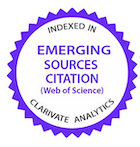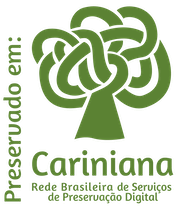Desempenho, rendimento de carcaça e qualidade da cama de frangos criados em cama tratada com micro-organismos
DOI:
https://doi.org/10.5216/cab.v14i1.17858Palavras-chave:
AviculturaResumo
O presente trabalho objetivou avaliar o efeito da adição de micro-organismos benéficos na cama sobre o desempenho, rendimento de carcaça e a qualidade da cama de frangos de corte. Foram utilizados 240 pintos de um dia de idade distribuídos em um delineamento em blocos casualizados com quatro tratamentos e quatro repetições. Os tratamentos foram: Tratamento 1 – Controle com aspersão de água na cama no alojamento e semanalmente; Tratamento 2 – Cama tratada com uma mistura de farelos inoculados e fermentados por micro-organismos no alojamento e aspersão de água na cama semanalmente; Tratamento 3 – Cama tratada por aspersão de micro-organismos no alojamento e semanalmente; Tratamento 4 – Cama tratada com a mesma mistura de farelos do tratamento 2 no alojamento e aspersão de micro-organismos no alojamento e semanalmente. O desempenho foi avaliado pelo consumo de ração, ganho de peso, conversão alimentar, viabilidade e rendimento de carcaça, peito e pernas. Das amostras de cama foram avaliados o pH, a matéria seca, cinzas e nitrogênio. Não foram verificadas diferenças entre os tratamentos. Nas condições em que os animais foram criados, pode-se concluir que o tratamento da cama não altera o desempenho, o rendimento de carcaça e a qualidade da cama de frangos de corte.
PALAVRAS-CHAVE: conversão alimentar; Gallus gallus; pH da cama; probióticoDownloads
Publicado
Como Citar
Edição
Seção
Licença
Copyright (c) 2013 Ciência Animal Brasileira / Brazilian Animal Science

Este trabalho está licenciado sob uma licença Creative Commons Attribution 4.0 International License.
Autores que publicam nesta revista concordam com os seguintes termos:
- Autores mantém os direitos autorais e concedem à revista o direito de primeira publicação, com o trabalho simultaneamente licenciado sob a Licença Creative Commons Attribution que permite o compartilhamento do trabalho com reconhecimento da autoria e publicação inicial nesta revista.
- Autores têm autorização para assumir contratos adicionais separadamente, para distribuição não-exclusiva da versão do trabalho publicada nesta revista (ex.: publicar em repositório institucional ou como capítulo de livro), com reconhecimento de autoria e publicação inicial nesta revista.
- Autores têm permissão e são estimulados a publicar e distribuir seu trabalho online (ex.: em repositórios institucionais ou na sua página pessoal) a qualquer ponto antes ou durante o processo editorial, já que isso pode gerar alterações produtivas, bem como aumentar o impacto e a citação do trabalho publicado (Veja O Efeito do Acesso Livre).






























